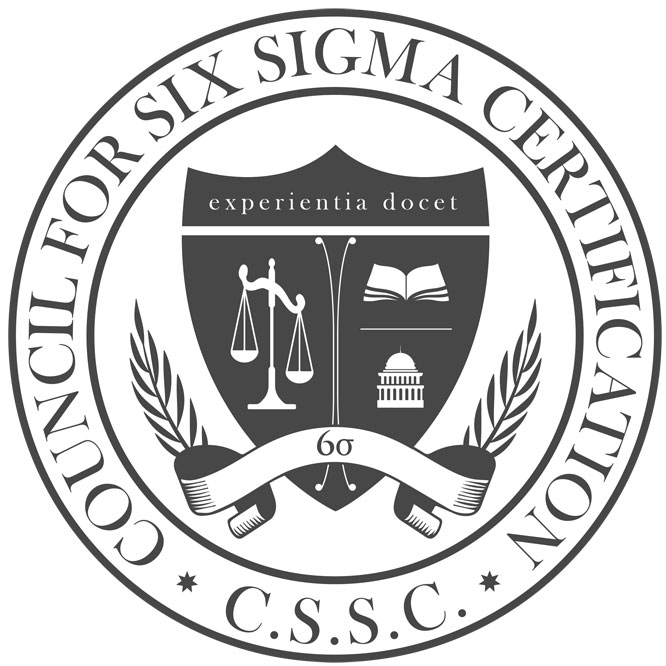-
Here are few key points about the CMQ course.
-
Thorough CMQ/OE certification training available online.
- Exceptional study materials provided to enhance understanding of the CMQ/OE body of knowledge.
- Emphasis on CMQ exam readiness through practical exercises and interactive discussions.
- Instructor holds 20 Years of experience in quality training and certifications, ensuring expertise and credibility.
- Engaging quizzes and realistic mock exams incorporated for dynamic learning experiences.
- One-year access to our learning management system, featuring instructional videos and module-specific assessments.
- Extensive assistance with ASQ certification application and scheduling. ( seperate registration need to be done with direct ASQ webiste for ASQ examination)
- Affordable course options offered by one of the most respected training institutes in the UAE.
- Trusted by over 15000 learners across the Globe.
The CMQ Certification empowers individuals to spearhead and drive process enhancement endeavors, whether on a local or global scale, across diverse service and industrial sectors. CQM/COEM plays a pivotal role in guiding team endeavors to establish and oversee customer-supplier relationships, aids in strategic planning and deployment initiatives, and assists in developing measurement frameworks to gauge organizational enhancement.
Achieve Global Recognized Certificate:
 |
|
Obtaining certification as a Certified Quality Manager is essential for honing professional competencies. A Certified Quality Manager is tasked with overseeing projects that align with strategic goals and inspiring the workforce to rally behind organizational objectives. Certified Quality Managers possess the ability to motivate and assess staff, oversee projects and personnel resources, analyze financial landscapes, evaluate risks, and adeptly utilize knowledge management methodologies to address organizational hurdles.
Module 1: Quality and Competitiveness on the Global Stage
- Quality and its Impact on Global Competitiveness
- Ethics, Corporate Social Responsibility, and Quality Management
- Cultivating a Quality Culture: Transforming Beliefs and Behaviors
- Strategic Management: Strategizing and Executing for Competitive Edge
- Forming Partnerships and Alliances for Quality Improvement
- Prioritizing Customer Satisfaction, Retention, and Loyalty
- Empowering Employees for Organizational Excellence
Course Plan
Module 2: Leadership, Collaboration, and Tools for Quality
- Leadership in Transition: Navigating Change for Quality Enhancement
- Fostering Team Building and Synergy for Collective Success
- Enhancing Organizational Performance through Effective Communication
- Empowering Through Education and Training for Quality Improvement
- Addressing Organizational Politics and Cultivating Positivity
- Managing Conflict in the Workplace: Resolving Tensions for Progress
- Understanding ISO 9000 and its Link to Total Quality Management
- Exploring the Arsenal: An Overview of Tools for Total Quality Management
Module 3: Strategies for Quality Enhancement
- Effective Approaches to Problem Resolution and Decision-Making
- Deploying Quality Function Deployment for Enhanced Productivity
- Enhancing Efficiency through Process Optimization and Control using Statistical Methods
- Continuous Advancement Techniques: Six Sigma, Lean, and Lean Six Sigma
- Utilizing Benchmarking for Performance Comparison and Improvement
- Streamlining Operations with Just-in-Time/Lean Manufacturing Principles
- Putting Total Quality Management into Action for Organizational Excellence
Course Agenda for CMQ Certification Training:
Day 1:
- Introduction to CMQ Certification and Course Overview
- Module 1: Quality Management Fundamentals
- Quality and Global Competitiveness
- Quality Management, Ethics, and Corporate Social Responsibility
- Quality Culture: Changing Hearts, Minds, and Attitudes
- Strategic Management: Planning and Execution for Competitive Advantage
- Partnering and Strategic Alliances
- Customer Satisfaction, Retention, and Loyalty
- Employee Empowerment
Day 2:
- Module 2: Leadership and Team Dynamics
- Leadership and Change
- Team Building and Teamwork
- Effective Communication
- Education and Training
- Overcoming Politics and Negativity
- Conflict in the Workplace
- ISO 9000 and Total Quality: The Relationship
- Overview of Total Quality Tools
Day 3:
Module 3: Quality Improvement Techniques
- Problem Solving and Decision Making
- Quality Function Deployment
- Optimizing and Controlling Processes through Statistical Process Control
- Continual Improvement Methods with Six Sigma, Lean, and Lean Six Sigma
- Benchmarking
- Just-in-Time/Lean Manufacturing (JIT/Lean)
- Implementing Total Quality Management
Review and Practice Exercises
Q&A Session
Course Conclusion
The benefits of CMQ certification include:
Enhanced Career Opportunities: CMQ certification opens doors to a wide range of career opportunities in quality management across various industries.
Professional Credibility: Holding CMQ certification demonstrates a commitment to excellence in quality management and enhances professional credibility among peers, employers, and clients.
Skill Development: The certification process equips individuals with advanced skills and knowledge in quality management, including problem-solving, strategic planning, and process improvement techniques.
Global Recognition: CMQ certification is recognized internationally, allowing certified professionals to pursue opportunities in both domestic and global markets.
Competitive Advantage: Certified Quality Managers gain a competitive edge in the job market by showcasing their expertise and proficiency in quality management practices.
Networking Opportunities: Certification provides access to a community of like-minded professionals, facilitating networking and collaboration in the field of quality management.
Increased Earning Potential: CMQ certification often leads to higher earning potential, as certified professionals are valued for their specialized skills and expertise.
Organizational Impact: Certified Quality Managers can drive organizational success by implementing effective quality management strategies, leading to improved processes, customer satisfaction, and overall performance.
Personal Growth: Pursuing CMQ certification allows individuals to continually expand their knowledge and skills in quality management, fostering personal and professional growth.
Contribution to Quality Culture: Certified professionals play a crucial role in fostering a culture of quality within their organizations, leading to sustained improvement and excellence.
Individuals who should consider pursuing the CMQ (Certified Manager of Quality) course include:
Quality Professionals: Quality managers, engineers, analysts, and coordinators seeking to enhance their skills and advance their careers in quality management.
Business Leaders: Executives, directors, and managers responsible for driving organizational performance and implementing quality initiatives.
Project Managers: Professionals overseeing projects focused on quality improvement, process optimization, or strategic planning.
Operations Managers: Those involved in managing operations and seeking to streamline processes, reduce waste, and improve efficiency.
Quality Assurance Personnel: Individuals responsible for ensuring compliance with quality standards and regulations within their organizations.
Continuous Improvement Practitioners: Professionals committed to fostering a culture of continuous improvement and implementing methodologies such as Six Sigma and Lean.
Anyone Interested in Quality Management: Individuals from various industries who recognize the importance of quality management and wish to acquire relevant knowledge and skills.
Career Changers: Individuals looking to transition into roles related to quality management and seeking to gain the necessary qualifications and expertise.
Overall, the CMQ course is suitable for anyone aspiring to excel in quality management and contribute to organizational excellence.

 |
|





Rate our Course
* Only for registered users